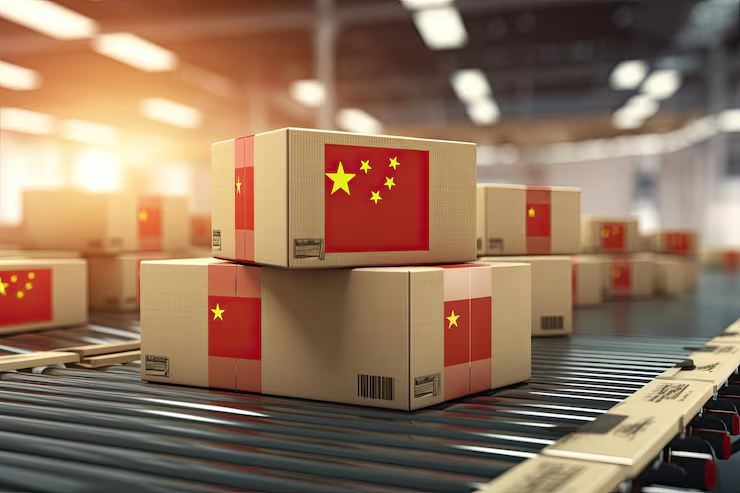In today’s interconnected economy, global supply chain transparency is not only an ethical responsibility but also a crucial element for long-term success. Customers, investors, and governments increasingly demand clarity regarding how businesses source materials, treat workers, and reduce environmental impacts. To remain competitive and trustworthy, businesses must adopt strong strategies that ensure transparency at every stage of their supply chain.
Why Supply Chain Transparency Matters
Transparency builds trust. Modern consumers expect brands to show accountability in sourcing, manufacturing, and distribution. According to a report from Harvard Business Review, companies that embrace transparent supply chains often experience increased brand loyalty and reduced reputational risks. Furthermore, governments worldwide are implementing stricter regulations to curb unethical practices such as forced labor, child labor, and environmental exploitation.
By prioritizing transparency, businesses not only comply with legal requirements but also demonstrate their commitment to sustainability, fairness, and responsible practices.
Implementing Digital Tracking Systems
The digital transformation of supply chains has made transparency more achievable. Businesses are increasingly adopting blockchain technology, AI, and IoT solutions to track goods from origin to final delivery.
- Blockchain ensures that every transaction is recorded securely, creating an immutable record of the product journey.
- IoT sensors provide real-time visibility into shipping conditions, such as temperature and location.
- AI-driven analytics highlight inefficiencies and risks across the chain.
Companies like IBM have already developed blockchain-based supply chain solutions, enabling organizations to trace materials and ensure authenticity. This kind of innovation builds trust and accountability with stakeholders.
Supplier Audits and Verification
Relying solely on supplier reports is not enough. Businesses must conduct independent supplier audits to verify ethical practices. Regular inspections, certifications, and third-party evaluations are key steps.
Platforms offering supplier verification services, such as China supplier verification, help businesses avoid fraudulent partners and ensure compliance with international standards. By working only with verified suppliers, companies strengthen their reputation and minimize operational risks.
Ethical Sourcing and Fair Labor Practices
One of the most critical elements of supply chain transparency is ensuring ethical sourcing and fair labor practices. Businesses should establish clear standards for their suppliers regarding:
- No child labor or forced labor
- Fair wages and safe working conditions
- Non-discriminatory hiring practices
- Sustainable material sourcing
Companies that neglect these areas risk severe reputational damage. On the other hand, those that actively promote ethical sourcing often attract socially conscious consumers who are willing to pay more for responsibly made products.
Sustainability and Environmental Responsibility
Today’s global market is also heavily influenced by environmental concerns. Companies must demonstrate commitment to reducing carbon emissions, waste, and water consumption within their supply chains. This includes:
- Partnering with eco-friendly suppliers
- Using recyclable or biodegradable packaging
- Reducing reliance on fossil fuels in transportation
- Implementing circular economy practices
Brands like Patagonia and Unilever are leading examples of businesses that have successfully integrated sustainability into their supply chains, boosting both transparency and consumer trust.
Leveraging Data for Better Decision-Making
Transparency requires actionable insights. By gathering and analyzing data across their supply chain, businesses can:
- Identify risks and inefficiencies
- Forecast potential disruptions
- Ensure compliance with international regulations
- Improve communication with stakeholders
For example, predictive analytics can help anticipate delays caused by geopolitical events or natural disasters, allowing companies to act proactively rather than reactively.
Building Strong Partnerships with Suppliers
Transparency is a collaborative effort. Businesses should focus on building long-term partnerships with their suppliers instead of transactional relationships. This can be achieved by:
- Sharing expectations clearly
- Providing training and resources for compliance
- Encouraging suppliers to adopt their own transparency measures
- Engaging in joint sustainability projects
By fostering cooperation, businesses create a supply chain ecosystem that values accountability and integrity.
Compliance with International Regulations
Global supply chains operate under a complex web of laws and regulations. Businesses must ensure compliance with standards such as:
- EU Supply Chain Due Diligence Directive
- UK Modern Slavery Act
- US Tariff Act Section 307
These frameworks aim to eliminate forced labor, promote human rights, and protect the environment. Staying updated with evolving regulations ensures businesses avoid legal consequences while building credibility.
Enhancing Transparency Through Public Reporting
Public reporting is one of the most effective ways to showcase supply chain transparency. Businesses should publish:
- Annual sustainability reports
- Supplier lists
- Third-party audit results
- Progress on ethical and environmental goals
Such disclosures not only strengthen trust with consumers but also attract socially responsible investors who value transparency and accountability.
The Future of Transparent Supply Chains
As global supply chains become more complex, transparency will remain a defining factor in business success. Companies that invest in digital technologies, ethical partnerships, and sustainability initiatives will gain a competitive advantage. More importantly, they will foster trust among stakeholders while building resilience in an unpredictable global market.
Conclusion
Transparency in global supply chains is no longer optional—it is a necessity. Businesses that prioritize digital tracking, ethical sourcing, supplier audits, sustainability, and compliance will thrive in today’s competitive landscape. By making supply chains more transparent, companies safeguard their reputation, strengthen customer trust, and ensure long-term growth.



































